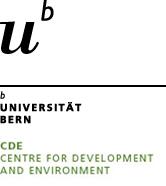Resource information
Land acquisitions continue to be an important trend
Large-scale land acquisitions continue to be an important issue for governments, development organisations, NGOs and farmers’ organisations all over the world; this remains the case even in times of global economic slowdown, recession and crisis. The scale of this trend and its significant impacts on rural transformation and livelihoods make it necessary to further monitor, observe and positively influence such deals wherever possible.
The Land Matrix Initiative (LMI) is a global partnership which aims to improve transparency around large-scale land acquisitions. It collects and provides data and information through a network of global and regional partners. In April 2012 it published its first Analytical Report (Anseeuw et al., 2012), which provided a comprehensive overview of the phenomenon, which at that time was newly emerging.
A new and updated report is needed
Since the 2012 report, large-scale land acquisitions have continued to take place and further insight has been obtained. Over this period the LMI has undergone a number of changes: it has incorporated regional partners in the global South; the database and platform have undergone major developments which enable it to present continuously updated information, with individual deals being tracked over time; and data gathering has been improved, drawing on multiple source types for each deal. While our understanding of large-scale land acquisitions is increasing, levels of transparency remain low. Hence the motivation of the LMI to support informed, equitable decisionmaking remains relevant.
This report aims to contribute to the body of knowledge available on land acquisitions in low- and middle-income countries by presenting an up-to-date analysis of the data contained in the Land Matrix database and providing complementary evidence based on case studies. It provides a concise overview of general trends and developments, as well as regional and local insights. In particular, the report gives an update on recent developments, zooms in to focus on the key target regions, investigates who acquires land and discusses emerging evidence on the impacts of large-scale land acquisitions. Additionally, through a number of case studies provided by our network partners, it provides insights into realities on the ground.






